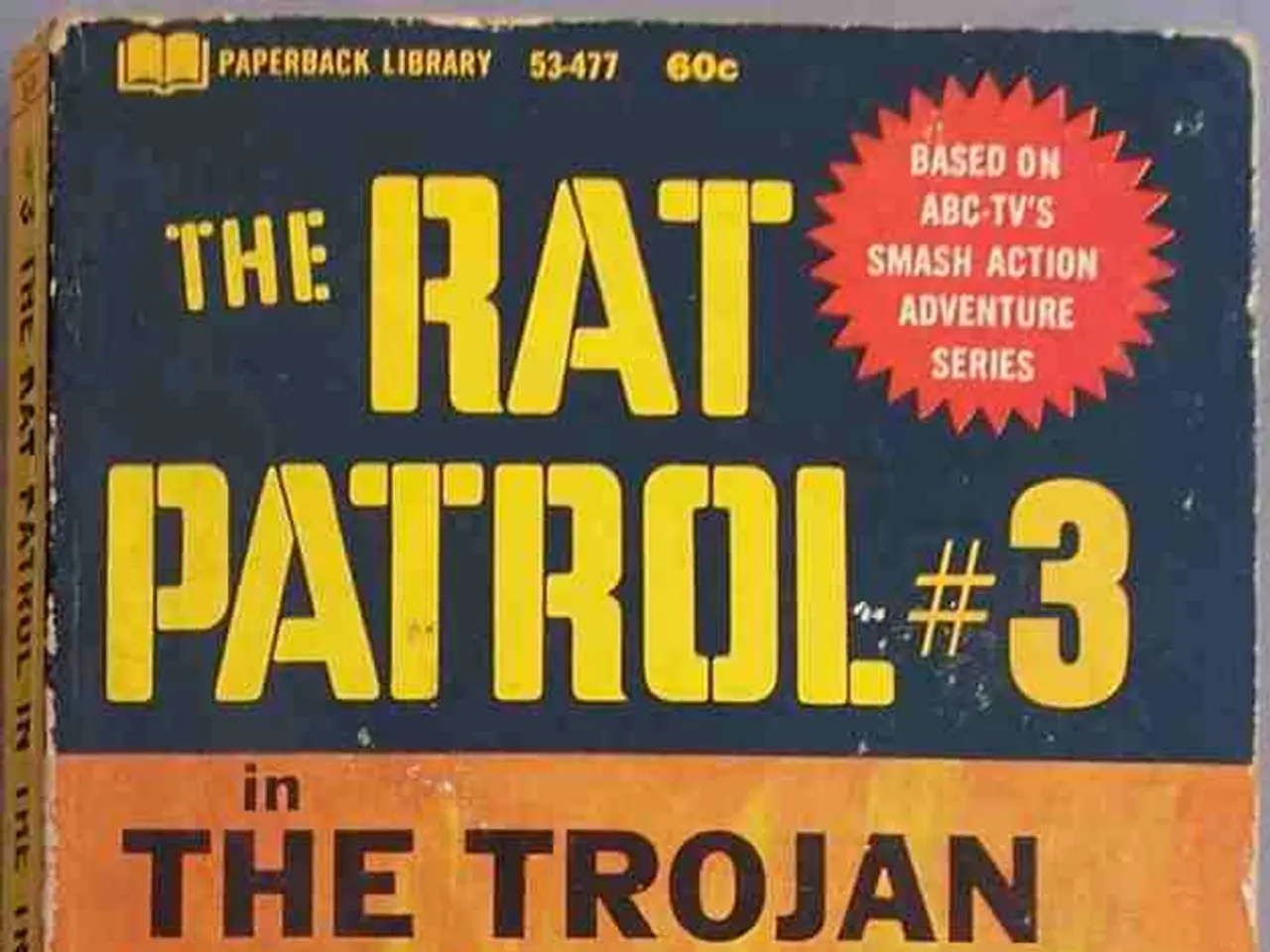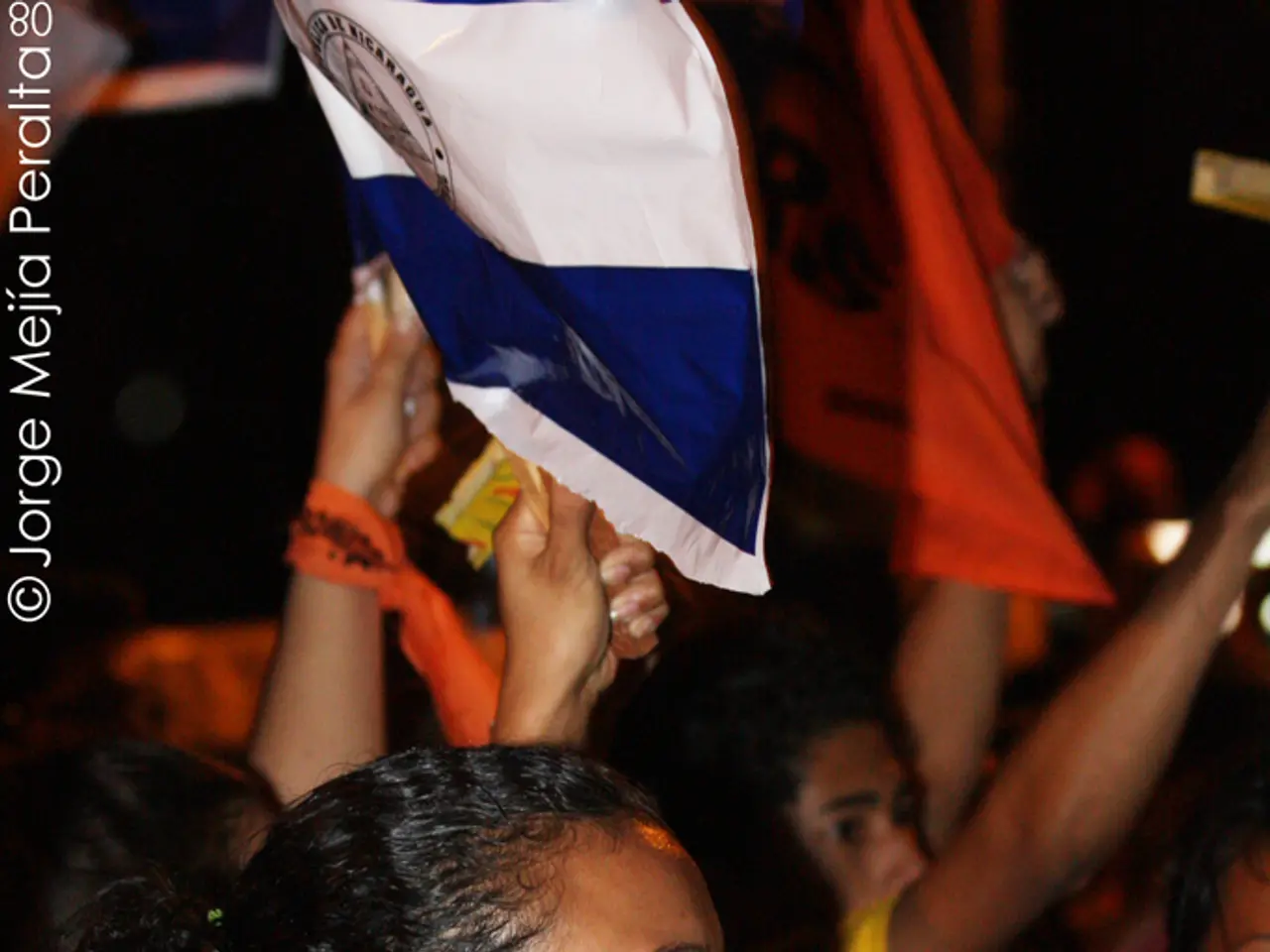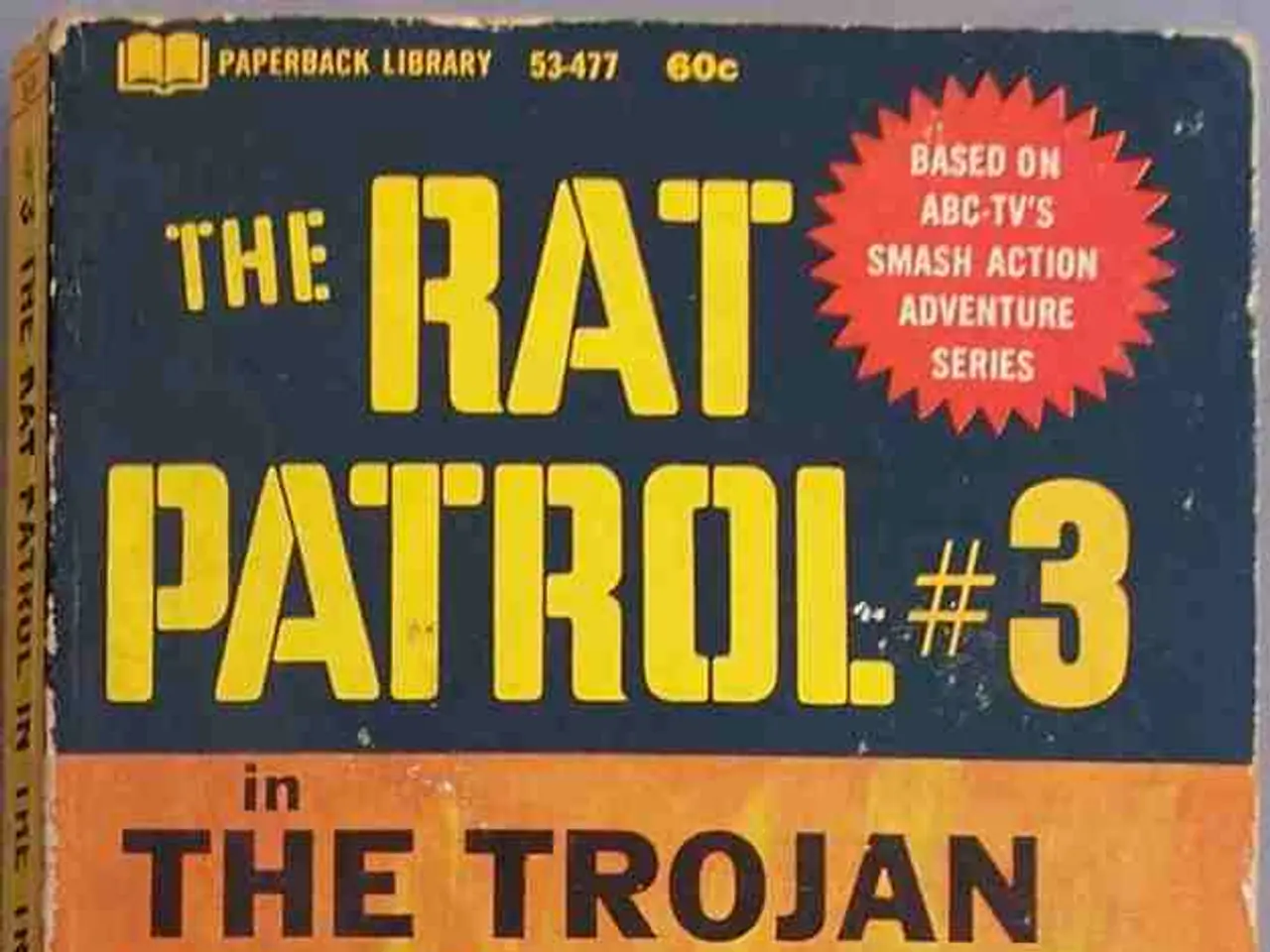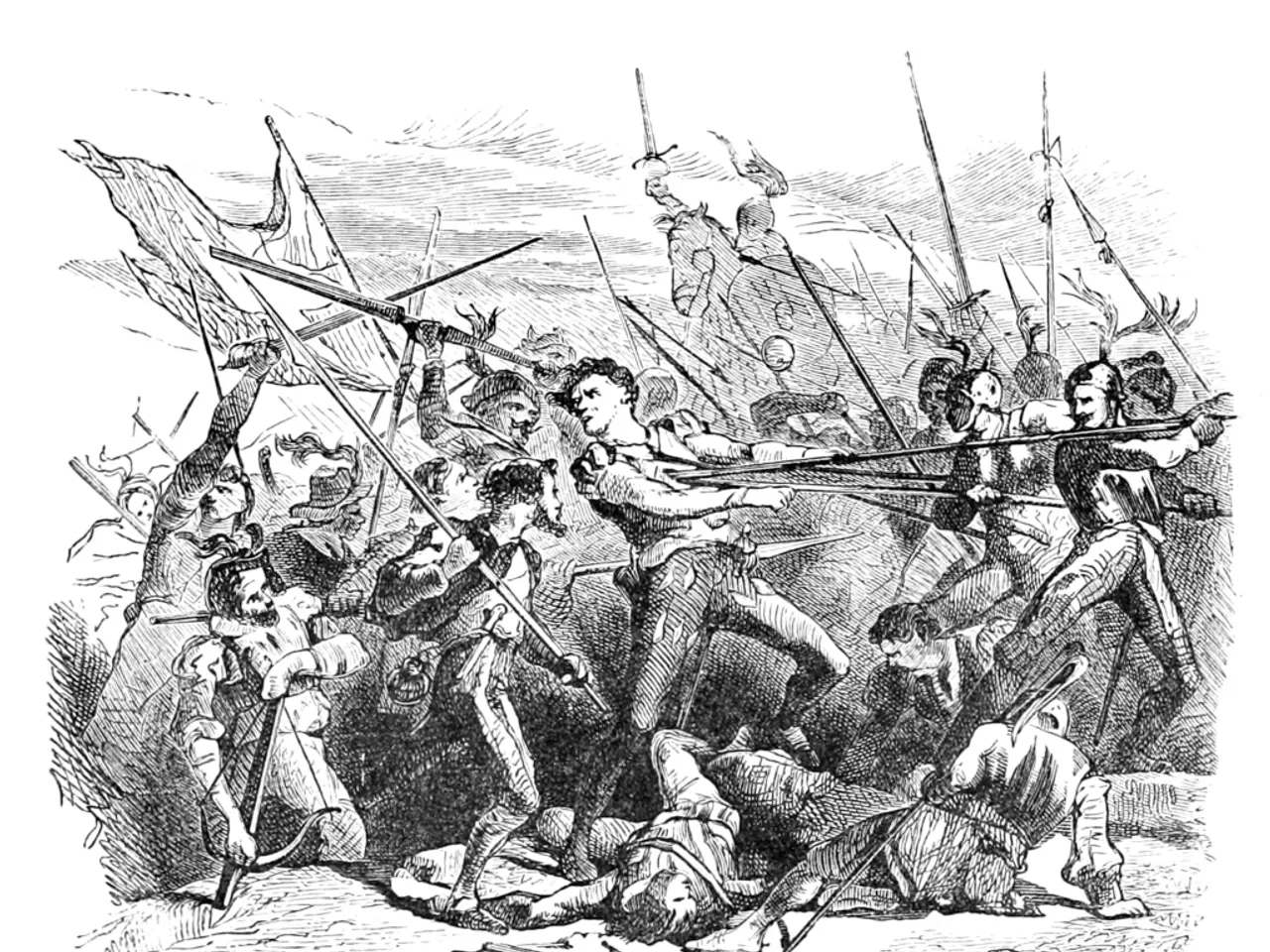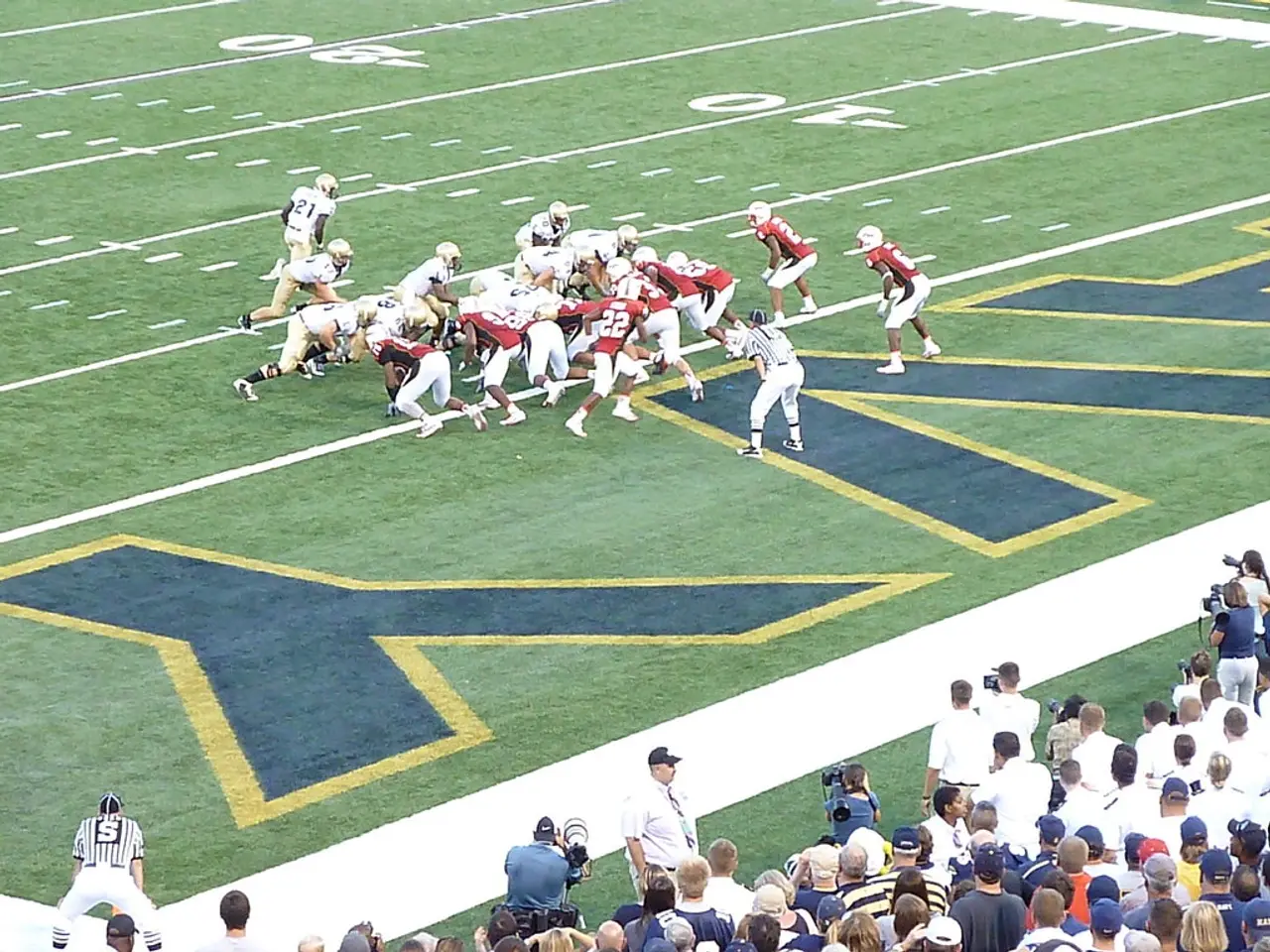Individual given community service for intoxicated, war crime-related outburst in Russian setting
In a recent development, a man in Riga, Latvia, has been charged for public statements made last summer that were deemed to glorify and justify war crimes involving the Russian army and Ukraine.
The individual, who has no prior criminal record, made his statements at a public transport stop in the city. According to the prosecutor's office, his statements went beyond the rights to freedom of opinion and expression as outlined in Article 100 of the Satversme and international legal acts.
The individual's statements were in Russian, and it is reported that he overheard two people communicating in Ukrainian before making his inflammatory remarks. He publicly declared that "the Russian army must act in such a way as to destroy Ukraine and Ukrainians."
The man admitted his guilt for the statements made, expressing regret for his actions. However, his regret and lack of a previous criminal record were factors that were mitigated during sentencing.
The statements made by the individual glorify and justify Russia's crimes against humanity, crimes against peace, and war crimes. Such conduct is criminalized under many national laws and international humanitarian law norms, although enforcement and interpretation can vary depending on geopolitical interests.
In Russia, the enforcement of laws addressing public speech about the war in Ukraine has become highly politicized, with increasing numbers of cases pursuing convictions related to extremist or terroristic speech acts, including glorification or justification of unlawful military actions. Convictions can lead to imprisonment and other penalties.
This case serves as a reminder of the serious legal consequences that can arise from public statements that glorify or justify war crimes. It also highlights the complexities surrounding the interpretation and enforcement of laws related to war crimes, extremism, and terrorism. As the situation in Ukraine continues to evolve, it is crucial for individuals to be mindful of the potential implications of their words and actions.
- In light of this incident, the general public in Riga must be aware that making statements that glorify or justify war crimes can lead to transportation stop-related arrests and subsequent charges.
- The case of the man charged for his war-related comments, made at a transport stop in Riga, demonstrates the intersection of crime-and-justice issues with political and international affairs.
- As the man's inflammatory statements, made in Russian, showed insensitivity to the ongoing war-and-conflicts between Russia and Ukraine, it reminds us of the importance of respectful communication in the era of general news and social media.
